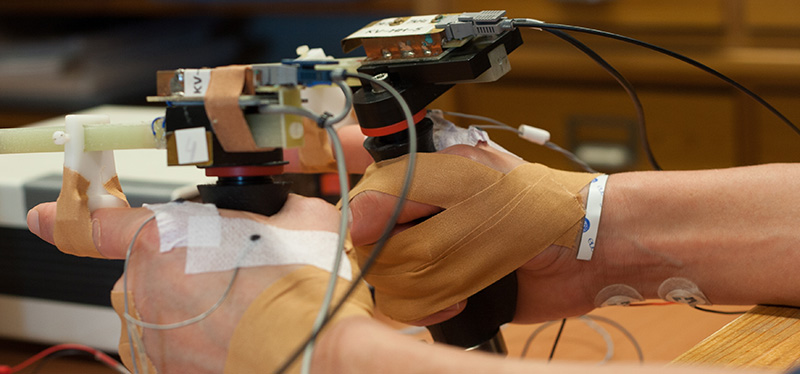Fatigue (both the perception of fatigue and fatigability) is an important debilitating and frequently occurring symptom in several patients, but also in the elderly population. Despite the high incidence, underlying mechanisms are still unknown. Our investigators use force measurements, electromyography, and functional magnetic brain resonance to investigate fatigue-related changes at the level of muscles, spine, and cortex. These neurophysiological measures are associated with measures of fatigue perception.

Fatigue is also used to stress the motor system to reveal basic principles of neuronal control of movement. During fatiguing contractions, cortical (motor-) areas increase their activity, and non-motor areas become active. This secondary effect of fatigue can result in a deterioration of cognitive task performance in both control and patient populations.
Our investigators study motor control across the age span in healthy volunteers and in people with multiple sclerosis, minimal traumatic brain injury or spinal cord injury.
Update your browser to view this website correctly. Update my browser now